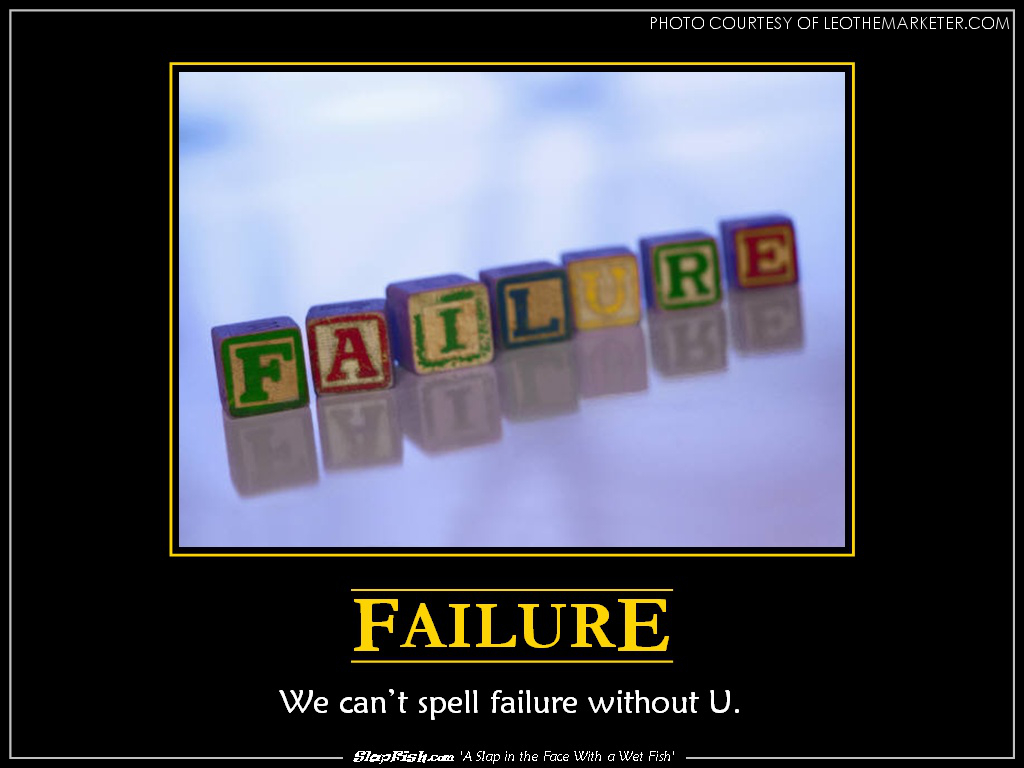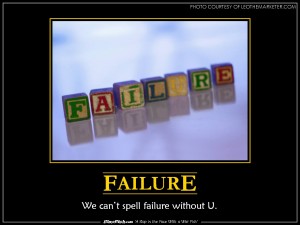

“I’ve failed over and over and over again in my life and that is why I succeed.”– Michael Jordan
Using the words of Michael Jordan, success stems from failure. People often strive to be perfect without realizing how beneficial, even somewhat necessary, it is to fail.
An article by Marc Smith in the Guardian details the importance of failure, especially among smart students and athletes. Smith writes that “athletes know how to deal with failure because they have a greater understanding of their own personal psychology.”
This applies even to high school athletes. I made Leesville’s varsity soccer team my junior year of high school, and received approximately 5-10 minutes of playing time per game. I was more tired mentally than physically–I was tired of watching the game from the bench, I was tired of feeling like I didn’t belong on the team, and I was tired of teammates telling me good game when I hadn’t even touched the field. But Smith is correct in that athletes have a strong level of mental strength, and I like to think I have become stronger mentally from that experience. I spent the next year becoming stronger, faster, quicker, more physical–I used my experience failing as motivation to improve. And I did.
Kristin Hommel, Leesville senior, described her experience not making the volleyball team.
“I transferred here from another school, and I had played volleyball there for two years. So I came here to tryout for the volleyball team, but I didn’t get on. At first I was really mad and disappointed, and I started working myself harder on the weekends. I went running almost every night.”
But Hommel sees her experience failing as, to a certain extent, a blessing in disguise.
“But [after not making the team], I got a part in the play, something that I wouldn’t have been able to do if I was playing volleyball. So I still got the chance to do something that I really wanted to do.” Instead of sulking and moping around, Hommel took matters into her own hands and decided to pursue another one of her interests. In turn she became stronger mentally, as she saw that failure can provide other options.
Students, on the other hand, are not always as well equipped as athletes are to deal with failure. Many do not have the same level of mental strength as athletes. Mental toughness involves having a great amount of perseverance, focus and concentration under pressure and a willingness to work to succeed. Students do not necessarily have experience dealing with a demanding coach or coping with adversity–experiences that in turn build and increase mental strength in athletes. Students often see their intelligence and abilities as fixed, that they cannot improve as they get older, meaning if they fail, then they fail, and there is not much that can be done about it.
Rachel Phillips (sister of the author and Leesville senior), took calculus her junior year of high school.
“In calculus, I just felt way over my head. I didn’t know what was going on, and most of the time I felt like it was a different language. I felt so uncomfortable in calculus that I got to a point where I just gave up,” said Phillips.
While she is smart, Phillips illustrates the fixed mindset of failure. Carol Dweck, a psychologist at Stanford University, believes success and failure are determined by a person’s view of his intelligence. If a person has a “growth mindset” and sees failure as something to learn from, then he will be more likely to succeed than those with a fixed mindset.
Looking back on her experience, Hommel believes she has a growth mindset.
“Usually I try to look at [failure] in the best light possible and do better next time,” said Hommel.
A year later, Phillips uses her experience with calculus as an opportunity to learn about her weaknesses.
“Looking back, I see calculus as a learning experience of my weaknesses, how I am not willing to try once I don’t understand something. I really hated calculus, and I would never take it again, but I do think that I learned a lot about myself in that process.
For students, a growth mindset allows them to view their intelligence as something they have control over. Like athletes, those with a growth mindset view failure as an experience to improve upon and learn from. And the people who can learn from failure are the people who succeed.
“I have not failed. I have just found 10,000 ways that won’t work.” –Thomas Edison
Your article again is thoughtful and insightful. I will miss these when you graduate.
GM